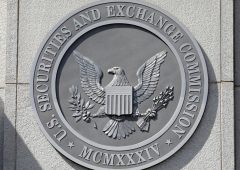Does Ripple’s Model Conflict with Crypto’s Decentralized Vision?
19.01.2025 15:30 1 min. read Kosta Gushterov
Ryan Selkis, founder of Messari, has stirred controversy by criticizing Ripple and XRP, claiming they conflict with the Trump administration's pro-crypto stance.
He argues that Ripple’s centralized control of XRP and its substantial market influence contradict the decentralized nature of blockchain, potentially hindering broader adoption.
Selkis points out that Ripple’s growing valuation, comparable to major companies like Salesforce and Bank of America, could skew perceptions of the crypto market and challenge Bitcoin-focused policies. He contends that Ripple’s dominance might overshadow decentralized innovations, complicating government efforts to promote blockchain technology.
The debate over Ripple’s centralization remains heated. Critics, including Selkis, argue that Ripple Labs’ control over a large portion of XRP undermines the core principles of decentralization. Ripple counters by emphasizing its role in improving cross-border transactions through partnerships with financial institutions.
Selkis has also accused Ripple’s leadership of pursuing power beyond financial success, adding fuel to the debate. Ripple, however, continues to defend its approach as a necessary evolution within the ecosystem.
This ongoing tension highlights a larger question: how to balance decentralization with innovation as blockchain technology evolves. Ripple’s rise forces the crypto community to confront whether its model is a step forward or a departure from the industry’s original ideals.
-
1
Ripple Faces Legal Setback as Court Rejects Bid to Ease Penalties
26.06.2025 16:54 1 min. read -
2
Coinbase Surges 43% in June, Tops S&P 500 After Regulatory Wins and Partnerships
29.06.2025 21:00 2 min. read -
3
Ripple Has Applied for a National Banking License
03.07.2025 7:00 2 min. read -
4
What Will Happen With the Stock Market if Trump Reshapes the Fed?
29.06.2025 13:00 2 min. read -
5
Barclays Blocks Crypto Credit Card Payments in Latest Blow to Retail Investors
26.06.2025 8:00 2 min. read
Charles Schwab to Launch Bitcoin and Ethereum Trading Soon, CEO Confirms
Charles Schwab is preparing to roll out spot Bitcoin and Ethereum trading, according to CEO Rick Wurster during the firm’s latest earnings call.
BlackRock Moves to Add Staking to iShares Ethereum ETF Following SEC Greenlight
BlackRock is seeking to enhance its iShares Ethereum Trust (ticker: ETHA) by incorporating staking features, according to a new filing with the U.S. Securities and Exchange Commission (SEC) submitted Thursday.
IMF Disputes El Salvador’s Bitcoin Purchases, Cites Asset Consolidation
A new report from the International Monetary Fund (IMF) suggests that El Salvador’s recent Bitcoin accumulation may not stem from ongoing purchases, but rather from a reshuffling of assets across government-controlled wallets.
Sberbank Moves to Dominate Russia’s Crypto Custody Sector
Sberbank, Russia’s largest state-owned bank, is preparing to launch custody services for digital assets, marking a significant expansion into the country’s evolving crypto landscape.
-
1
Ripple Faces Legal Setback as Court Rejects Bid to Ease Penalties
26.06.2025 16:54 1 min. read -
2
Coinbase Surges 43% in June, Tops S&P 500 After Regulatory Wins and Partnerships
29.06.2025 21:00 2 min. read -
3
Ripple Has Applied for a National Banking License
03.07.2025 7:00 2 min. read -
4
What Will Happen With the Stock Market if Trump Reshapes the Fed?
29.06.2025 13:00 2 min. read -
5
Barclays Blocks Crypto Credit Card Payments in Latest Blow to Retail Investors
26.06.2025 8:00 2 min. read


